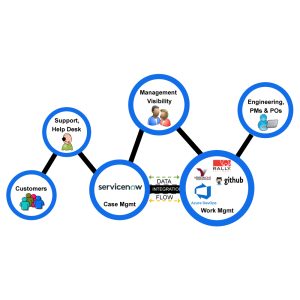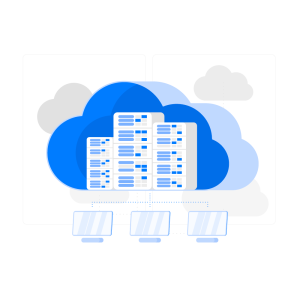In today’s changing business world it’s crucial to optimize processes to stay ahead of the competition. Process mining is a tool that helps businesses understand their operations better, simplify workflows and enhance efficiency. This article delves into how process mining can be customized for industries, with examples illustrating its value across different sectors.
Introduction to Process Mining
Process mining is a data focused method that involves analyzing the traces left by business procedures. By extracting and studying data from IT systems process mining offers an in depth real time perspective on how processes are carried out. This allows organizations to pinpoint bottlenecks, inefficiencies and deviations from the planned process flow.
Understanding Process Mining
At its essence process mining fills the gap, between process analysis and big data analytics through three stages;
Discovery: Creating a visual depiction of the process using event logs from IT systems.
Conformance: Contrasting the process with the predefined model to spot discrepancies.
Enhancement: Enhancing the process by identifying areas that can be optimized.
Benefits of Process Mining
The advantages of utilizing process mining are far reaching and encompass;
- Enhanced Efficiency: Removing bottlenecks to streamline operations.
- Enhanced Compliance: Ensuring that processes comply with both internal standards is crucial for compliance.
- Cost Reduction: Reducing waste and optimizing the allocation of resources leads to cost reduction.
- Data-Driven Decision Making:Utilizing insights from real process data to make informed strategic decisions is essential for data driven decision making.
- Faster Time to Market: Speeding up process improvements to bring products and services to market results in a time to market.
- Increased Transparency:Offering a view of business processes enhances transparency and improves management and oversight.
Process Mining in Manufacturing
Manufacturing stands out as a sector of processes making it a prime candidate for process analysis. From overseeing production lines to managing the supply chain there are areas where this approach can be beneficial.
- Improving Production Efficiency
Efficiency plays a role in manufacturing settings. Process analysis can uncover underlying inefficiencies within production lines, such as machine downtimes, delays in material delivery and less than optimal task sequencing. By addressing these issues manufacturers can notably cut down on both production time and expenses.
- Elevating Quality Assurance
Quality assurance holds importance in manufacturing. Through process analysis it becomes possible to trace defects to their source ? whether they arise during production or within the supply chain. This allows manufacturers to implement measures efficiently resulting in improved product quality and heightened customer satisfaction.
- Streamlining Supply Chain Operations
Managing the supply chain involves navigating through a web of stakeholders and processes. Process analysis offers insights across the supply chain by identifying delays, redundancies and areas ripe for enhancement. This leads to an responsive supply chain capable of swiftly adjusting to market shifts.
Process Mining in Healthcare
The healthcare sector encounters hurdles like mandates, patient safety concerns and operational efficiency challenges. Process analysis steps in with tailored solutions, by providing intelligence into healthcare workflows.
- Improving Patient Care
Taking care of patients involves steps starting from admission until they are discharged. The use of process mining can pinpoint any delays or inefficiencies in how patients move through the system allowing healthcare providers to cut down on waiting times and enhance patient outcomes. For instance hospitals can better manage their schedules and resources by examining data on a patient’s journey.
- Ensuring Compliance with Regulations
Healthcare institutions are required to adhere to rules and regulations. Process mining plays a role in monitoring compliance by comparing the processes followed with the regulatory standards in place. Any deviations can be swiftly. Rectified, thereby minimizing the chances of compliance issues and associated penalties.
- Cutting Down Operating Expenses
Operating costs within the healthcare sector tend to be high due to factors like costs, equipment maintenance and patient care expenses. Through process mining inefficiencies within these areas can be uncovered, leading to cost savings without compromising on the quality of care provided. For instance optimizing how equipment is used and maintained can reduce both downtime and repair expenditures.
Process Mining in Financial Services
The financial services industry is known for its processes and high transaction volumes. Process mining serves as a tool for institutions seeking improvements in efficiency levels, compliance adherence and customer satisfaction.
- Enhancing Transaction Handling
Transaction processing lies at the core of financial services operations. By leveraging process mining techniques, on transaction data analysis, bottlenecks and delays can be identified for more effective processing. This does not boost customer satisfaction. Also cuts down on operational expenses.
- Strengthening Fraud Detection
Detecting fraud is an issue for institutions. Utilizing process mining can bolster fraud detection capabilities by pinpointing patterns and deviations from procedures. This facilitates identification and prevention of activities safeguarding both the institution and its clientele.
- Enhancing Customer Service
Customer service plays a role in the realm of services. Process mining can scrutinize customer engagements and highlight areas that could be enhanced. For instance through analyzing call center data financial institutions can streamline processes, diminish waiting times and elevate the customer journey.
Process Mining in Retail
The retail sector operates within a landscape where efficiency and customer satisfaction are paramount. Process mining offers insights into operations spanning from managing inventory to providing top notch customer service.
- Optimizing Inventory Management
inventory management is essential for success in retail. By leveraging process mining to examine inventory data retailers can uncover patterns and trends that aid in maintaining stock levels. This mitigates the risks associated with overstocking or running out of stock ensuring products are accessible when customers require them.
- Enhancing Customer Experience
Prioritizing customer experience is key in settings. Process mining enables tracking of customer interactions across touchpoints, like store visits, online shopping activities and inquiries made to customer service departments.
By pinpointing areas of concern and opportunities, for enhancement retailers can improve the customer journey resulting in customer loyalty and increased sales.
- Optimizing Supply Chain Operations
The retail supply chain encompasses a range of activities from sourcing to delivery. Process mining offers a view of these operations uncovering inefficiencies and opportunities for enhancement. This fosters a responsive supply chain that can effectively meet customer needs.
Adopting Process Mining; Recommended Practices
To fully leverage the advantages of process mining companies should adhere to industry practices.
- Establish Clear Goals: Prior to implementing process mining it’s crucial to establish objectives. What challenges are you looking to address? Which processes do you aim to assess? Setting objectives will steer the process of mining initiatives. Ensure they deliver value.
- Select Appropriate Tools: There is a variety of process mining tools on the market each with its strengths and weaknesses. Choose a tool that aligns with your organization’s requirements and seamlessly integrates with your IT infrastructure. Consider factors like user friendliness, scalability and support services.
- Maintain Data Accuracy: The reliability of process mining insights hinges, on data quality. Verify that the data extracted from your IT systems is comprehensive, precise and current. Before analyzing the data it’s important to clean and preprocess it.
- Involve Stakeholders: Efforts in process mining should include participation from all parties such as process owners, IT personnel and decision makers. Engaging stakeholders ensures that the insights obtained are practical and that there is support for implementing process enhancements.
- Track Progress and Refine: Process mining is a process. Continuous monitoring and refining are crucial to maintain advancements. Regularly assess the insights acquired and adjust your processes as necessary to align with evolving business circumstances and goals.
Conclusion
Process mining serves as a tool that can lead to enhancements in various sectors. By offering a perspective on how processes are actually carried out it empowers organizations to pinpoint inefficiencies, ensure adherence to regulations and boost overall performance. Whether you operate in manufacturing, healthcare, financial services or retail industries process mining can be customized to suit your requirements providing insights and fostering continuous enhancement.
Nexright is ready to assist you at every stage of this journey. Our experience and customized solutions guarantee that your company enjoys all the advantages of process mining enabling you to attain top notch efficiency and continual expansion.




